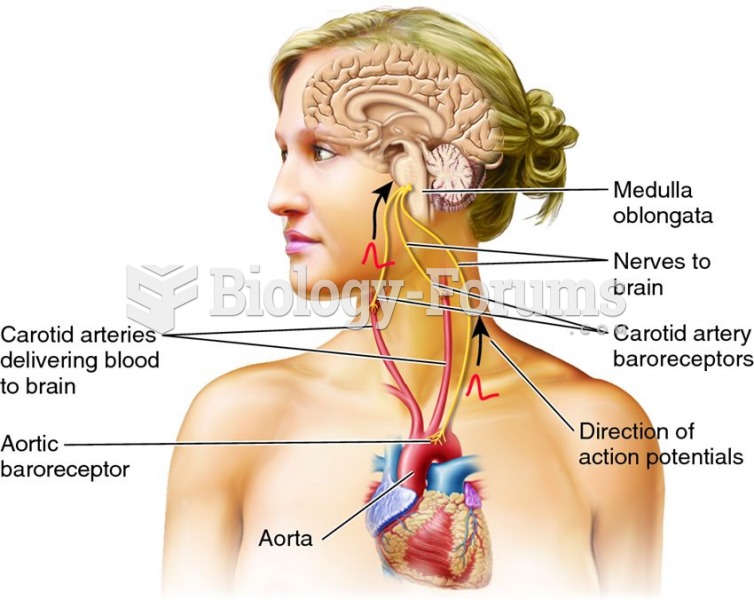|
|
|
The liver is the only organ that has the ability to regenerate itself after certain types of damage. As much as 25% of the liver can be removed, and it will still regenerate back to its original shape and size. However, the liver cannot regenerate after severe damage caused by alcohol.
After 5 years of being diagnosed with rheumatoid arthritis, one every three patients will no longer be able to work.
Aspirin is the most widely used drug in the world. It has even been recognized as such by the Guinness Book of World Records.
There are more bacteria in your mouth than there are people in the world.
Parkinson's disease is both chronic and progressive. This means that it persists over a long period of time and that its symptoms grow worse over time.







